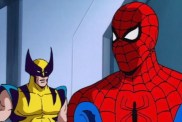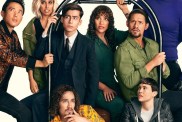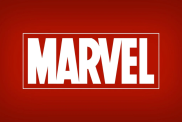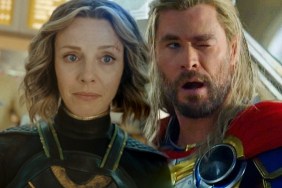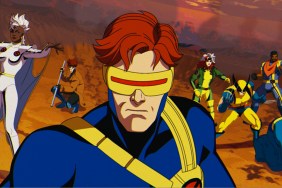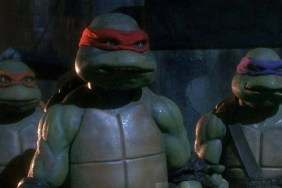
Martin Campbell had been directing television and movies for almost twenty years before he got the call that would change his career, the chance to direct the fifth James Bond, Pierce Brosnan, in 1995’s GoldenEye.
Eleven years later and he’s returned to the franchise, once again inducting a new James Bond, as Daniel Craig takes over the role for the relaunch of the 007 franchise with Casino Royale.
James Bond Hype! talked with the lively director about his approach to making a very different prequel to reinvigorate the James Bond franchise.
James Bond Hype!: Barbara Brocolli told us that she practically begged you to come back. What was your trepidation about making another Bond film?
Martin Campbell: Simply repeating what I’d done on “GoldenEye.” I mean, how many submarines can you blow up? To be honest, that was the reason. Bond in “GoldenEye” is pretty much a set character, he’s another version of Connery. Well, Connery was terrific. The point about this story is that he’s much more human in this I think than the other ones, and that’s also going back to the basics of the book, and that was sort of interesting for me.
JBH!: But you did make two Zorro movies.
Campbell: Yeah, yeah, I did do two of those. They paid me a lot of money on the second one. No, no, in truth, it was just that. I did two Zorro movies, but I did feel a bit protective after the first one, so I did the second. 43 other directors had done the Bond movies, and the book is interesting, so that’s why I did it.
JBH!: When you were brought on to direct, was it already decided that since it was a relaunch, Pierce was not going to be involved?
Campbell: When I came on, it was already decided that Pierce wasn’t going to do it, so I was not involved in that at all. The idea was that when you go back to basics with Bond, of course, he’s a much younger Bond and a different Bond, so clearly, Pierce having done four wouldn’t work in “Casino Royale.”
JBH!: There was a lot of talk about how Daniel handled the criticism, but as a director, is there anything you can say to him when that’s going on?
Campbell: No, you always get upset by that stuff, but once you start filming, I think he took it on himself. Of course, he looks at all that so he can’t help it, given that the criticism was so fierce. But once we started filming, I think we talked about it and we ended it and said, “let’s just get on with the movie, to hell with the criticism and let them judge at the end.” We’ll just get on with what we have to do and just ignore the press, so that’s what we did.

JBH!: Was the casting of Vesper Lynd a nightmare?
Campbell: Well, it was in the sense that it took us a long time to find Vesper Lynd. We’d gone to Hollywood, we talked to one or two stars about it, and at the time, we didn’t have the final script and a Bond Girl always had the connotation of tits ‘n’ ass basically. They’re wall-dressing, they sort of never had much of a brain and they wander around in bikinis, the typical stereotypical image of a Bond girl. And we considered a lot of people, we read some people, and finally, I saw Eva Green in “Kingdom of Heaven,” in fact her part was quite seriously cut in that, but on the DVD her whole part has been restored and she’s terrific, and also the Bertolucci film “The Dreamers.” We got her over, tested her. I was already shooting by the time we cast her.
JBH!: When you watched the scenes back, were you amazed by the chemistry between her and Daniel?
Campbell: I was really. You never know until you finally screen the damn thing for yourself. And I’m always reluctant to do it, because you edit as you go along and you assemble and you edit and then there’s that horrible day where you have to look at the whole thing and that’s a nervewracking experience. But when I saw it, I saw the chemistry was there, and I thought it was a great match between Daniel and Eva Green.
JBH!: What was it like working with Daniel? He’s been known to be very hands on about fighting for what he believes in.
Campbell: He’s very hands on. Yeah, you fight for it, and we’d have our what we euphemistically call our “artistic discussions” (laughs) We’d argue and fight a few times, but it was always about the right thing. About the character. He would have very specific ideas. Sometimes, if I didn’t agree, we would talk about it, argue about it, but I think pretty much the end result was absolutely the right thing.
JBH!: When you make a movie like this and the producers want a PG-13 rating, how far can you take the violence, for instance with the torture scene? Do you have to shoot different versions of it?
Campbell: No, it’s interesting. The American censors, I had to cut back a bit on the violence in the stairwell. I couldn’t have him choking so long, and equally in the opening in the bathroom, I had to pull back on that. Alright? In England, they didn’t give a damn, and said that the violence is terrific, but the Americans left the torture scene as was, didn’t touch anything. (laughter) And the English made me take a shot out of the torture scene. In the stairwell scene, I had to take four or five blows out for the American censors ’cause they objected to the violence. Go on and look at your gun laws, guys.
JBH!: Can you talk about shooting the poker scenes and getting those amazing reactions from Daniel and Mads Mikkelsen?
Campbell: In the poker scenes, my instructions for them were that you can milk it. All the looks, just take your time playing your hands, because I can change it all in editing. I can use as much as I need. It’s very simple. I’m looking at you, you’re looking at me, and really, my instructions were simply that they don’t rush it, they take their time, they look at each other, they try to figure the other guy out. The pace of the movie will be dictated in the editing. Now that’s unusual, because a lot of scenes or most scenes in movies, you have to get the pace right when you shoot it, because no amount of editing tightens it up. That doesn’t really alter the internal pace of the scene, but with card-playing, you do the opposite. So they might take ten seconds before they make their move where in the movie, it might be two seconds. Do you see what I mean? So that’s the way you do it. You milk it all along, so everybody’s reacting, taking their time, trying to psyche the other person out, trying to figure out what hand they’ve got.
JBH!: Was there a lot more room to experiment this time like with the black and white scene or the odd camera angles?
Campbell: Well, yeah, much more, because in “GoldenEye,” it was pretty conventional in terms of a Bond film. As I said, the character was very much the Bond we’d been brought up with. In this one, he goes through a much darker process, quite honestly. He gets poisoned, he gets the hell beaten out of him in the torture scene, the violence is much less CG and much grittier I think, and tougher, he bleeds a lot. He’s much more vulnerable, he genuinely falls in love and has the relationship with Vesper, so it does give you a lot more room to experiment a little bit. It’s much more fun being able to suddenly change the style, make it more handheld, more bizarre, but not go so extreme. I mean, I shot the opening scene deliberately, the scene in the office like “The Ipcress File.” If you’ve seen “The Ipcress File,” you would recognize the kind of style that “The Ipcress File” was like that. Whereas the bathroom scene is a lot more brutal, handheld sort of grainy horrible, messy feel to it.

JBH!: On this movie, you had two other directors, Alexander Witt doing 2nd Unit and Stuart Baird editing. Was it nice having those other directors to bounce ideas off of and how did you collaborate with them?
Campbell: Well, I storyboard all my sequences, all my action sequences are all storyboarded, and my instructions to Alex are, I’ll say to him, “Make sure you shoot the storyboard, but then do what the hell you want or what you think is better, and if you feel the action can be a little better by doing this then do it.” I give them flexibility to do that. Alex of course is a terrific second unit director. Stuart was my editor on “Zorro” and he was the go-to guy for Warner Bros. He reedited everything from “Mission: Impossible” to “The Specialist” to the first “Tomb Raider” he recut. He used to work for Ken Russell. He cut “Tommy,” he cut the first “Superman,” the Dick Donner movie. The guy’s pretty damn good. He’s also very fast and we had a schedule. I didn’t start shooting until the end of January, so we had to be in the theatres by the 17th, so we really had to do it fast. Stuart Baird is brilliant. He’s on top of everything, everything is organized and he cuts fast. He was down in the Bahamas. He followed us everywhere, all over the world, in Prague, in London, so he was doing it as we went. We had five weeks of editing at the end and that was that and we were finished. Although you have assembled it as you go along, but it’s very tight.
JBH!: Is the idea of the relaunch to slowly reintroduce us to Bond staples like Q like how it was done in “Batman Begins”?
Campbell: No, really the thing was that we stuck pretty closely to the book. There’s no Q in the books, he doesn’t appear. And really, we thought pretty faithful to the book like that even though we had to change the Cold War aspect of the story for obvious reasons. We kept away from gadgets. It just doesn’t sort of fit the tone of the movie. It just didn’t feel. He couldn’t suddenly have Jon Cleese storming in with a rocket car or something. Seriously, it just didn’t… it just jarred. We just couldn’t fit it into this. Maybe in the future, in some form, he’ll be reintroduced, but there’s been no discussion of that.
JBH!: Can you talk about the decision to bring Judi Dench back and how that might mess up the new continuity?
Campbell: Strange enough, it doesn’t make any sense in the timeline. We simply said that you gotta suck that up, because you can’t really change Judi Dench at this point, she’s just too good. We did discuss it, because there’s no logic to it, of course, but we just thought she’s so perfect in the role. And somehow, the woman in the role make the relationship much better with Bond. It gets more depth in their relationship than if it’s a man, you know what I mean? The man’s the boss, but somehow with her, she brings a communion with Bond that is different. The opening scene where he breaks into her apartment, she’s livid, and by the end of it, when she’s talking on the phone with him in Venice, it’s a much more personal. They’re locked together now.
JBH!: Were you given a bigger picture of where they are planning to take Bond?
Campbell: No, none of us. The book was the only template we went by. There was no saying, “Well, in the next story what happens is…” All we’re left with is this. (SPOILERS!!!!!!) He’s clearly going after this dark organization and reap his revenge on whoever destroyed Vesper, and the idea is you think that Le Chiffre is the boss, but he’s just a cog in the wheel and Mr. White is just a cog in the wheel and where does it all lead to? (SPOILERS OVER)
JBH!: Do you think they’ll eventually bring back Specter or Blofeld?
Campbell: I don’t think they’ll go as fantastical in that direction, if you know what I mean. You won’t get the huge room with 27 people sitting at the table and the man stroking a cat, and then #27 disappears into the shark tank. (laughs) or get electrocuted. Oh, no. Which is all wonderful stuff, actually. I don’t think you’ll see that, but you may see a more realistic interpretation of that.
JBH!: Since this is a prequel, you have to set things up like the Aston Martin and his choice in martinis, but did you throw any subtle nods to previous films in the backgrounds (like having an actress from “You Only Live Twice” as one of the poker players)?
Campbell: No, I think all the obvious things are there, like he wins the Aston Martin, he gives the ingredients to the martini. I just couldn’t fit it in with all that product placement. (Laughter) Every terrorist and every person in the world has a Sony Erikson phone. If you look in the car park, there are a lot of Fords.
JBH!: What other classic Bond things did you try to bring into this film?
Campbell: Well, obviously the action scenes are very Bond, but hopefully a little more realistic than previous Bond films. I think there are a lot of fans who expect the big action scenes. I think they need that. The Aston Martin obviously is a classic Bond, although in the books he’s got a Bentley. The Aston Martin doesn’t figure at all. But in the movies, the Aston Martin was always, and that was another delicious thing, to actually smash the thing to hell. (laughter) We wrecked two of them, the first one didn’t work. But the second one’s a world record in the Guinness Book of World Records apparently. It rolls 8 times. Yeah, it got the award the other night.

JBH!: Was someone from Guinness there on set to see that?
Campbell: I don’t know how they did it. The thing was that I saw some rally footage which they obviously had just one camera and does just that flipping, so I said to Alexander Witt, “There’s no cuts in this, you just got to film it all on one angle, no cuts, no smart ass cheating, it’s all gotta be done for real.” So that’s what they did. I think what they did was that they had a wedge or a ram under the car and they had like a slope board. It was doing about 80 and it hits the slope board, and the ram smashes down and flips the car. [I was] bloody nervous because the Aston Martin people were seeing a $270 thousand car go… and it was the real deal, there was no mocking up the car, it was the real thing.
JBH!: Were you involved with picking the Chris Cornell theme song?
Campbell: Not really. That becomes a more corporate thing in terms of, as they always have.
JBH!: What was the hardest scene for you to do?
Campbell: The house scene was very difficult. The poker was very difficult, the poker because you have to cover everything, everybody’s face, all the actions have to be covered, close-ups of the cards, the chips, you have to master the scene, and you have to vary it, too. You can’t just shoot the thing in one-wide shot or endless close-ups. You have to vary it slightly.
JBH!: You’ve done two of these movies now, so would you consider doing a third one? There’s obviously something magic in this movie that you might want to try to recapture for a sequel.
Campbell: I don’t know. The thing is that after “GoldenEye” I said I wouldn’t do another one, because I felt like I was repeating myself, and here I am.
JBH!: But you don’t feel overprotective of this one?
Campbell: No, because there’s a lot of directors who could do as well as I can, and a good queue of them I’m sure would want to do a Bond film. Quentin Tarantino, I think, fought for the rights of “Casino Royale.” He wanted to do it and that would have been interesting.
Casino Royale opens everywhere on November 17.
Source: Edward Douglas

